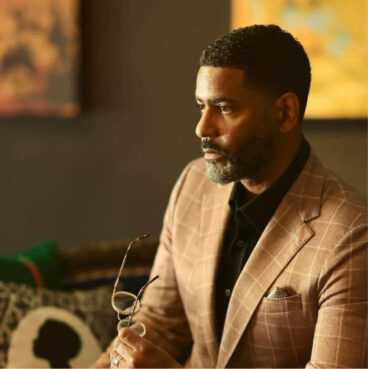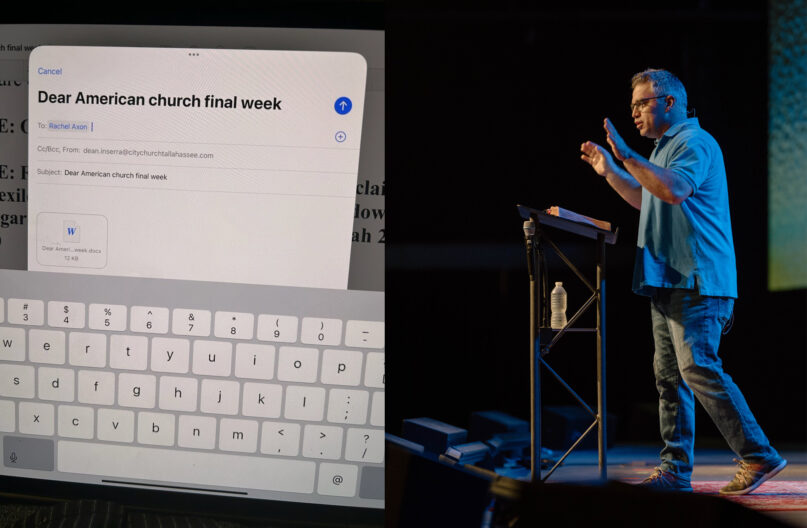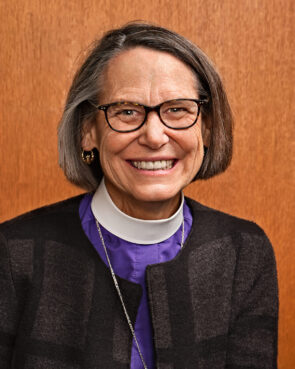(RNS) — As they mount their pulpits this weekend (Nov. 8-10), clergy of several faiths said that they expect emotions to be swirling still from President-elect Donald Trump’s victory over Vice President Kamala Harris. Often facing a constellation of feelings in the pews, many are working on strategies if not for healing, then at least not ignoring the subject.
“The big ‘do’ is talk about it: Find some way to talk about it,” said the Rev. Leah Schade, president of the Academy of Homiletics, a 200-member organization of teachers and graduate students of preaching. “The big ‘don’t’ is don’t just pretend like it didn’t happen.”
Schade, who also teaches at Lexington Theological Seminary in Kentucky, said she has been recommending the same do’s and don’ts for sermons during “very fraught, very fractious” election seasons since 2016.
Preachers are turning to webinars, directories of appropriate liturgies and moral support from each other as they determine how to address their congregants. Schade said focusing on the message that “all people are created in God’s image,” no matter who they vote for, will do, as will recalling the need to keep everyone safe or being careful with our words. But it is important for clergy to speak up.
“If we don’t say anything, that unintentionally sends a message that the Bible and our faith has nothing to say about these issues that are going to impact the children, teens, families, seniors, adults and our congregation for generations to come, said Schade, author of the forthcoming “Preaching and Social Issues: Tools and Tactics for Empowering Your Prophetic Voice.”
RELATED: White Christians made Donald Trump president — again
Some clergy will be speaking after taking strong stands themselves ahead of the voting day. In the weeks leading up to the election, the Rev. Otis Moss III, pastor of Chicago’s Trinity United Church of Christ, led after-worship “Democracy is on the Ballot” sessions in which he critiqued Project 2025, a series of conservative proposals issued by the Heritage Foundation, a Washington think tank, that some say is a policy blueprint for a second Trump administration.
Now, said Moss, members of his predominantly Black congregation are mostly saddened by the outcome at the top of the ballot. “I’m going to be sharing with people the necessity to hold your grief, to be able to grieve prophetically but not pathetically,” he said, drawing on the New Testament’s Letter to the Hebrews, which says “let us run with perseverance the race marked out for us.”
“Prophetic grief holds pain but refuses to fall into despair or cynicism,” said Moss. “Pathetic grief falls into despair, cynicism and pessimism and lives a narrative of ‘I can do nothing.’”
Imam Tariq I. El-Amin, who leads the majority African American Masjid Al-Taqwa — a mosque four miles due east of Moss’ church — likewise planned a message encouraging engagement rather than inaction. He planned to cite a verse from the fourth chapter of the Quran to bring home a point about the common identity “we share as a human family.”
Though personally glad to see two Black women elected to the Senate and the re-election of two Muslim women to the House, El-Amin said his Friday sermon might not touch on particular candidates and likely won’t mention Trump’s past imposition of a ban on travel for citizens of some Muslim-majority countries.
“I don’t think it’s actually necessary for me at this point to talk about the what-ifs of what he might do as opposed to it being more important to talk about what does our engagement look like for the next four years,” said El-Amin. “This is actually not a time for us to go into our silos, but the work that we want to talk about doing is work that we should be doing broadly, reaching out and connecting with other communities.”
Rabbi Ariel Stone, who leads a diverse congregation that includes Israeli citizens in Portland, Oregon, said she will preach on the story of Abraham — “the first person to self-identify as what we now call the Jewish people” — and link it to the need to focus on community, rather than one individual, even the U.S. president.
“What we are holding onto is not that we agree on everything politically, but that we believe in the strength of our community to carry us through and to hold onto each other while we cope with how our reality is being experienced,” she said. “We need to rediscover the fact that we actually really do need each other.”
Pastor Dean Inserra completed his sermon before election results were announced. Photos courtesy of Inserra
Dean Inserra, lead pastor of City Church in Tallahassee, Florida, didn’t even wait to know who had won. “I wrote my message on Tuesday afternoon, because I believe the message does not change depending on who’s in office,” said Inserra, a member of the Southern Baptist Convention Executive Committee. “I wanted our church to see that and see that I really do believe that, so I posted a picture on Instagram of my sermon being done on Tuesday at, like, 2 o’clock.”
He was finishing up a series on the biblical book of Jeremiah with a message about “what it looks like to live faithfully among a people who don’t share their beliefs,” as his conservative church sits in Florida’s “very, very blue” capital city. Inserra, who described himself as having “great concerns about the progressive politics of the left,” said he never endorsed Trump from the pulpit but did speak on earlier weekends about voting “no” on Amendment 4, an abortion rights measure that was narrowly rejected on Tuesday.
He tweeted his gratitude for that result but had no plans to revise his sermon because of it: “We talked about it enough, and I don’t want to gloat.”
Some faith-based organizations helped clergy prepare for what they might say in study groups, supportive spaces and webinars such as the Central Conference of American Rabbis’ online session titled, “After the Elections: What Is My Message This Shabbat?”
“Some rabbis are certainly pleased by the results of the election, but many are distressed,” said Rabbi Hara Person, chief executive of the group, which comprises Reform rabbis, in a statement to RNS. “Still, whatever their vote expressed, rabbis are able to hold multiple and even conflicting and challenging truths, perspectives, and create space for respectful, inclusive dialogues.”
Bishop Bonnie A. Perry of the Episcopal Diocese of Michigan has been sending a weekly “Responding Faithfully to this Election” newsletter to clergy and lay leaders and helped organize a theme of “Going Forward Together” for Nov. 10 services in her diocese. A guide for liturgies that day contains options for Scripture readings and prayers.
“It’s hard to figure out what you should say, what you shouldn’t say, and how you thread that needle,” she said in an interview, but she recommended that clergy emphasize that people should be treated equally regardless of their religious or political views.
“I want people to be super-gracious about this,” added Perry, whose diocese, headquartered in Detroit, includes 14,000 people in 75 congregations in southeastern Michigan. “I want us to be really clear that we are a place of hope and welcome and inclusion.”
Not every preacher is choosing to proceed with just a traditional sermon on the Sunday after Election Day.
“The focus of our service is doing worship and meeting in the sanctuary and then leaving the sanctuary to serve,” said the Rev. Liz Mosbo VerHage, pastor of LaSalle Street Church in Chicago. “So this week, we had already planned, ahead of time, to do a neighborhood breakfast with our vulnerable neighbors nearby, and we’re having a speaker come in and teach about food insecurity.”
Schade cautioned against clergy preaching “a message that says we just need to ‘come together,’ especially when there are those who are being targeted because of transphobia, misogyny, antisemitism, Islamophobia, fear of immigrants, violence, racism.”
There could be activities beyond the sermon, she suggested, including one-on-one conversations with clergy and congregants and other individual private actions.
“If you say, ‘I’m available for a private conversation at your home, in my office, in a coffee shop,’ whatever, I think that is an OK thing to do,” she said. “One thing that pastors can do this Sunday, or in coming Sundays, is set up a table with candles and allow people to light a candle during the service to represent whatever their prayer to God is.”
Bob Smietana contributed to this report.
RELATED: Photo gallery: Faith on display on Election Day in the US and abroad
Discover more from CaveNews Times
Subscribe to get the latest posts sent to your email.


























![Exploring the Serene Beauty of Nature: A Reflection on [YouTube video title]](https://cavemangardens.art/storage/2024/04/114803-exploring-the-serene-beauty-of-nature-a-reflection-on-youtube-video-title-360x180.jpg)





























